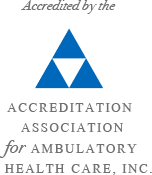Rubber Band Ligation for Hemorrhoids Treatment in New York, NY

What are hemorrhoids?
Hemorrhoids are swollen and inflamed veins that are located in the lower rectum and anus. The symptoms associated with hemorrhoids can vary, depending on their location and size. When left untreated, hemorrhoids can progress in severity and become prolapsed, which may cause them to push through the anus. There are two types of hemorrhoids: internal hemorrhoids and external hemorrhoids. Band ligation is one type of procedure that may be recommended for the treatment of internal hemorrhoids.
What is Rubber Band Ligation for Hemorrhoids?
Rubberband ligation, or band ligation, is a hemorrhoids treatment used for internal hemorrhoids that deprives them of their source of blood, causing them to shrink and eventually fall off. This internal hemorrhoid treatment is usually done in a series of two to four banding procedures. The hemorrhoids become progressively smaller, eventually being eliminated. The hemorrhoid tissue, deprived of its source of blood, is sloughed off within seven to ten days.
Why is Band Ligation Performed?
Rubber band ligation is performed for patients who have internal hemorrhoids. Patients experiencing any of the following symptoms should be evaluated by a gastroenterologist, as they may indicate the presence of haemorrhoids:
- Rectal bleeding
- Anal itching or irritation
- Lump or swelling around the anus
What Does Hemorrhoid Treatment with Band Ligation Involve?
 To determine whether band ligation is the best hemorrhoid treatment for your needs, you should consult with a skilled gastroenterologist. A GI doctor can make a diagnosis, determine the location and severity of the hemorrhoids, and recommend appropriate treatment options for your condition. Your doctor may also prescribe specific lifestyle changes or other conservative treatment recommendations leading up to your procedure. You will also need to arrange for someone to escort you home from your procedure if you will be receiving a sedative.
To determine whether band ligation is the best hemorrhoid treatment for your needs, you should consult with a skilled gastroenterologist. A GI doctor can make a diagnosis, determine the location and severity of the hemorrhoids, and recommend appropriate treatment options for your condition. Your doctor may also prescribe specific lifestyle changes or other conservative treatment recommendations leading up to your procedure. You will also need to arrange for someone to escort you home from your procedure if you will be receiving a sedative.
Prior to rubber band ligation, a local anesthetic may be administered to hemorrhoids, and you may be given a sedative to help you relax. The doctor will have you lie on your side while the procedure is performed. A special scope is used to view hemorrhoids, and an instrument is used to place the small rubber band around the base of hemorrhoids. The entire procedure typically takes one hour. After the band ligation, there will be a brief period of observation and then you will be released to go home.
Possible complications following the procedure include pain, a feeling of tightness, and bleeding. Pain is the most common complication; severe or sharp pains may indicate the band needs to be repositioned. If the patient received a local painkiller, there may only be a feeling of pressure. Bleeding may occur for a brief period after the procedure and when the tissue falls off. There is a risk of infection, and an antibiotic may be prescribed to prevent infection. Be sure to alert your doctor if there is increased pain, bleeding, or fever.
Following the procedure, sitz baths may help alleviate pain and feelings of tightness. Patients are advised to take their prescribed medications as directed and avoid heavy lifting that may cause straining.
Schedule a Consultation
If you believe you are suffering from hemorrhoids and may need band ligation treatment, the first step is to consult with a skilled NYC gastroenterologist. Gramercy Park Digestive Disease Center (GPDDC) is home to top board-certified gastroenterology physicians, with extensive experience in digestive disease diagnosis and treatment. Call today at (212) 979-3237 to learn more about our GI services and treatments. You can also fill out the Appointment Request Form on this page. Our practice looks forward to serving you!


